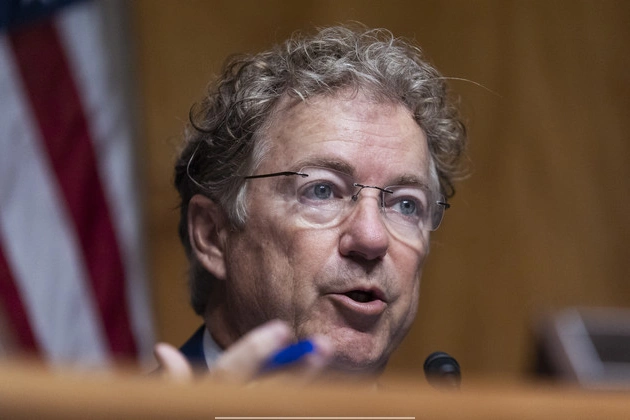
Sen. Rand Paul (R-Ky.) reiterated his opposition to President Donald Trump’s comprehensive domestic policy package, citing concerns over the proposed $5 trillion debt ceiling increase as the most alarming aspect.
Challenging the Status Quo
A staunch advocate for fiscal discipline, Paul expressed reservations about the substantial borrowing associated with the bill, despite his support for certain provisions such as tax cuts and expenditure reductions. He emphasized that the magnitude of the debt ceiling raise contradicts conservative principles of financial prudence.
Standing Firm
In an appearance on ‘Fox News Sunday,’ Paul declared, “I cannot endorse a $5 trillion surge in the debt ceiling.” He underscored the necessity for a dissenting voice in Washington that upholds the sanctity of balanced budgets and denounces escalating deficits.
The House greenlit Trump’s ambitious legislative agenda, dubbed the ‘Big, Beautiful Bill,’ following intricate negotiations within the GOP. While the President urged swift Senate approval before July 4, Paul voiced his reluctance to comply without substantial efforts to curtail the national debt.
Despite House Speaker Mike Johnson’s plea for minimal alterations by Senate lawmakers, Paul’s critique mirrors the Senate Republicans’ inclination towards revising the bill to align with conservative fiscal values.
Proposing Alternatives
Paul criticized the current spending cuts within the bill as inadequate and insufficient to address the escalating deficits, labeling them as ‘wimpy and anemic.’ He highlighted the projected federal deficit of $1.9 trillion for the year, a figure consistent with the previous year’s records.
In a proactive move, Paul tabled an amendment proposing a three-month debt ceiling raise of $500 billion to necessitate periodic votes on expenditure increments, enhancing the GOP’s bargaining power for reforms.
A Call for Pragmatism
Expressing skepticism towards the strategic rationale behind the substantial debt ceiling hike, Paul criticized the GOP leadership for prioritizing political expediency over fiscal prudence. He underscored the necessity for revenue-expenditure alignment to avert a looming fiscal crisis.
Paul elucidated, “We generate approximately $5 trillion in revenue while our expenditures amount to $7 trillion. The arithmetic is stark… We are entrenched in a cycle of unsustainable debt accumulation that necessitates immediate rectification.”
Despite the Republican leadership’s defense of the debt ceiling escalation as a preemptive measure to circumvent partisan impasses, Paul dismissed it as a short-sighted approach fostering unchecked spending.
Charting a Different Course
Paul’s dissent underscores a broader ideological clash within the Republican Party, accentuating the divergent perspectives on fiscal policy and the imperative for principled financial stewardship.











